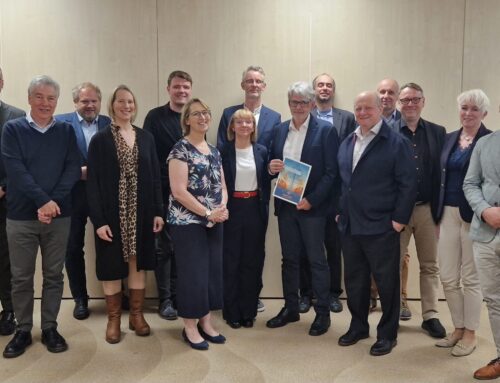
Joint statement COP24: forests and the forest sector should play an active role in climate change mitigation and adaptation
3 December 2018, Brussels
Joint statement COP24: forests and the forest sector should play an active role in climate change mitigation and adaptation
Forests represent a significant potential for climate change mitigation. The signing organisations call on the parties to the Paris Agreement to recognise in their conclusions of the COP24 the role of actively managed forests in climate mitigation and adaptation, in particular:
- highlight the potential for carbon storage in wood products and substitution of fossil materials and energy for climate change mitigation through the increased use of wood and its products;
- enhance the absorption of CO2 through active forest management and creation of new forests;
- adapting forest management practice to make forests more resilient to changing climatic conditions.
Representing 13% of the net removals of EU’s total greenhouse gas emissions 1) , the capture of CO2 in forests, carbon storage and the substitution of fossil material and energy have to play a crucial role in the international negotiations of the COP24.
At the same time, forests are seriously affected by climate change: This summer has clearly shown that global warming causes an increased amount of forest fires and leads to an extension of areas affected by wild fires 2). Forest fires not only represent a serious danger for the climate, environment and biodiversity, but also a serious threat for human beings and rural areas.
Furthermore, the occurrence of other natural disturbances such as storms, insects’ outbreaks, extended draught periods and heat waves are increasingly reported by forest owners and managers and are projected to further increase due to global warming.
A solution to counteract these negative tendencies is sustainable adaptive forest management which creates synergies between climate change mitigation and adaptation needs.
Forest sector contributes to climate change mitigation by replacing fossil-based materials and energy by woody biomass, while making sure forests continue growing and providing their multiple services. Moreover, developing markets for forestry residues will make climate adaptation measures, such as regular thinnings, economically more attractive for forest owners with a positive long-term impact on viability and health of forests.
As a consequence, sustainably managed forests will become more resilient against natural disturbances, such as storms and fires, have a higher productivity leading to higher carbon sequestration and in result providing more raw material to substitute carbon intensive material and energy. Fostering synergies between climate change mitigation measures and untapped market-based potential of forest sector via sustainable forest management will give them an active role in limiting global warming.
_______________
1)Nabuurs et.al.: Climate-smart forestry: mitigation impacts in three European regions. In: European Forest Institute, From Science to Policy 6, p. 7.
2)EU Joint Research Centre: Increased prevention efforts needed to curb the growing risk of future wildfires: URL: https://ec.europa.eu/jrc/en/news/increased-efforts-curb-wildfires
Related Posts
Contact
EUROPEAN ORGANISATION
OF THE SAWMILL INDUSTRY AISBL
Rue Montoyer 24/box 20
BE-1000 Brussels
Tel.: +32 2 287 08 68
Email: info@eos-oes.eu



